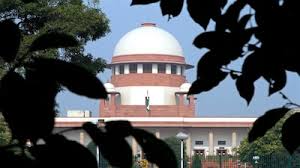Non-pronouncement of verdicts by Jharkhand HC: 10 convicts, 6 on death row, move Supreme Court

In a rare and troubling development, ten convicts from Jharkhand have approached the Supreme Court of India. Among them, six are on death row. They allege the Jharkhand High Court has failed to pronounce verdicts on their appeals, despite hearings concluding over a year ago.
These convicts believe the delay violates their constitutional rights, especially the right to life and personal liberty under Article 21. They argue that justice delayed is justice denied, particularly in cases involving death sentences.
Convicts Caught in Legal Limbo
The convicts filed appeals challenging their convictions in the Jharkhand High Court. In several cases, the court completed hearings as early as 2022. However, the court has still not delivered judgments. This delay has pushed the convicts into a prolonged legal limbo.
Among the ten, six face execution, while four are serving life sentences. For those on death row, each day brings psychological distress. They live with constant fear, not knowing whether the court will spare their lives or uphold their death sentences.
Supreme Court Steps In
Unable to wait any longer, the convicts took their fight to the Supreme Court. They requested urgent relief and a direction to the Jharkhand High Court to pronounce pending judgments. Their plea emphasizes that long delays in delivering verdicts go against the principles of natural justice.
A Supreme Court bench led by Justices Surya Kant and Joymalya Bagchi has taken note of the case. The Court issued notices to both the Jharkhand High Court and the state government, asking them to explain the delay.
The bench observed that such delays raise serious constitutional concerns. It questioned how the system could allow convicts, especially those facing capital punishment, to wait endlessly for justice.
A Worrying Pattern of Delays
This case isn’t an isolated incident. In May 2025, the Supreme Court reviewed similar complaints. It identified 67 criminal cases in Jharkhand where verdicts remained reserved for months, even years.
In many of these cases, division benches had completed hearings but failed to pronounce judgments. Notably, eight out of the ten convicts in the present plea had their cases heard by the same judge. This pattern suggests deeper administrative issues in the High Court.
The convicts argue that this isn’t just negligence—it’s a denial of their right to a fair and timely trial.
What the Law Says
According to Section 374(2) of the Code of Criminal Procedure, convicts have the right to appeal. The law also expects courts to dispose of criminal appeals within a reasonable time.
Most High Courts, including Jharkhand, follow rules that suggest verdicts should be delivered within six weeks of the final hearing. If that doesn’t happen, courts are expected to re-list the case or pass it on to another bench. However, in these ten cases, the High Court took no such steps.
Human Impact and Mental Torture
Legal experts point out that convicts on death row suffer immense mental trauma when courts delay their fate. Prolonged uncertainty leads to anxiety, depression, and in some cases, death row syndrome. It can cause long-term psychological damage.
Families of the convicts are also affected. They struggle to support their loved ones without knowing what lies ahead. Some of the petitioners have already spent over a decade in prison. For them, even a few weeks of delay feels unbearable.
Voices from the Legal Community
Senior lawyers and legal commentators have strongly criticized the High Court’s conduct. Supreme Court advocate Ramesh Desai stated, “No one—especially those on death row—should wait indefinitely for a verdict. This delay isn’t just procedural failure; it’s a moral failure.”
Activists and legal reform groups have demanded more accountability. They argue that delays in criminal appeals, particularly in capital punishment cases, undermine public confidence in the judiciary.
A Push for Reform
The Supreme Court may now consider setting new standards. It could enforce strict deadlines for reserved judgments, especially in criminal matters. Legal scholars have also suggested using automated case-tracking tools to flag delays.
There is a growing demand for reforms that would hold judges and registries accountable when verdicts remain pending beyond reasonable timeframes.
What Happens Next?
In the coming weeks, the Supreme Court will examine replies from the Jharkhand High Court and the state government. Based on their response, the Court may:
- Order suspension of death sentences until verdicts are announced
- Direct the High Court to deliver judgments immediately
- Consider guidelines to ensure timely verdicts in criminal appeals
Legal observers believe this case could become a turning point in how courts handle judicial delays. It may also strengthen safeguards for convicts facing the death penalty.
Conclusion
This case from Jharkhand highlights a troubling truth: justice in India sometimes takes too long. For convicts awaiting decisions that could save or end their lives, the system must do better.
The ten petitioners are not asking for mercy. They are simply asking for timely justice—something every citizen is guaranteed under the Constitution. As the Supreme Court steps in, the country watches closely. Will this case finally push courts to deliver justice on time? The coming days will tell.






